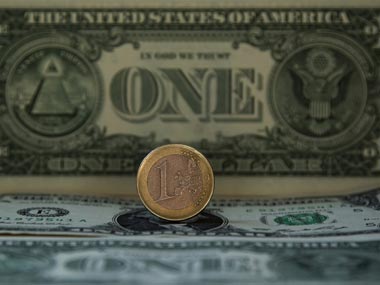By R Jagannathan
While you are watching Greece and the eurozone closely to see whether we are going to have another meltdown or not, spare a thought for the US: all available indications are that the US could be headed for another recession early next year, if it is not already tipping into one right now.
Here’s why it is a big deal.
#1: US jobs growth has slipped from 2,50,000 a month to nearly Rs 1,30,000 in March and April. And “the Economic Cycle Research Institute (ECRI) says post-War personal income growth in the US has never been this weak for three months in a row without triggering a recession. It has happened 10 out of 10 times,” notes Ambrose Evans-Pritchard in The Telegraph.
#2 By the end of this year, the Bush era tax cuts will expire and automatic budget cuts could also start kicking in from 1 January. The US Congressional Budget Office (CBO) says the US could fall off a “fiscal cliff” if tax rises and budget cuts of $1.2 trillion “are not avoided.” If the Republicans and Democrats do not agree to again raise the borrowing limits, the US economy could contract 1.3 percent in the first half of 2013, says a BBC report quoting the CBO.
Add the eurozone crisis and a China slowdown, and all bets are off if the US too falls into recession. A drop of 1.3 percent in the US would tip the world into serious slowdown, if not a recession.
[caption id=“attachment_319810” align=“alignleft” width=“380” caption=“A US-Europe double-stimulus means a bounce for the markets, as the extra liquidity finds its way into all kinds of assets. Some of it should come to India - assuming we don’t shoot ourselves in the foot once again. Reuters”]  [/caption]
The dangers are, however, known to everybody, not least the US Federal Reserve Chairman Ben Bernanke, who was the one invoking the dangers of falling off the “fiscal cliff.”
Impact Shorts
More ShortsThis is where the short-term news gets better: assuming Bernanke apprehends a further slowdown and sees no prospect of a bipartisan agreement to let America borrow more and avoid a slump, what will he do?
Will there be another Lehman-type response and stimulus package? Will there be another bout of monetary easing, a QE-3, or Quantitative Easing-3? With the US presidential elections now underway, President Obama cannot afford the economy to taper off before November this year.
Don Luskin, CIO at Trend Macro, told CNBC TV that “QE3 is on the way.”
And when will that happen? “It`s just going to be at the June FOMC (Federal Open Market Committee). It`s just going to happen. I don`t know what form it’s going to take, or how big it’s going to be, but it doesn’t matter because the ways of doing it are the same.”
Which is why Jack Bouroudjian, CEO of Bull and Bear Partners, thinks this is the time to derisk investments, but not necessarily sell everything you have. According to him, this is the time “to buy protection and walk away, not sell and walk away.” He agrees that QE-3 is on the way.
Moreover, there is no lack of voices urging the US government to spend its way out of a possible crisis to create jobs. Alan Blinder, a former Vice-President at the US Fed and Princeton University economics professor, is one such advocate. In his three-step plan (read about it here), the first step would be to “enact a modest stimulus, sharply targeted on job creation - and avoid falling off the fiscal cliff.” His other steps include a long-term deficit reduction plan, and figuring out a way to cur health care costs.
The message for India and Indian investors is this: if QE-3 happens, and Europe, too, finally works out a way to revive growth (one expects Germany’s Angela Merkel - the only one who favours austerity over stimulus - to change her mind sooner than later), the world economy’s day of reckoning will be postponed. A US-Europe double-stimulus means a bounce for the markets, as the extra liquidity finds its way into all kinds of assets. Some of it should come to India - assuming we don’t shoot ourselves in the foot once again.
But whatever the short-term gains from higher liquidity, the long-term pain will still have to be borne by the world economy when all the stimulus packages and QEs have to be withdrawn.
In short: one should be able to smell the moolah coming from the next QE-3 and its European counterpart, and look for a quick market bounce. But long-term bets in the stock markets should have at a four to five-year horizon.
No market can live on steroids forever.


)

)
)
)
)
)
)
)
)



